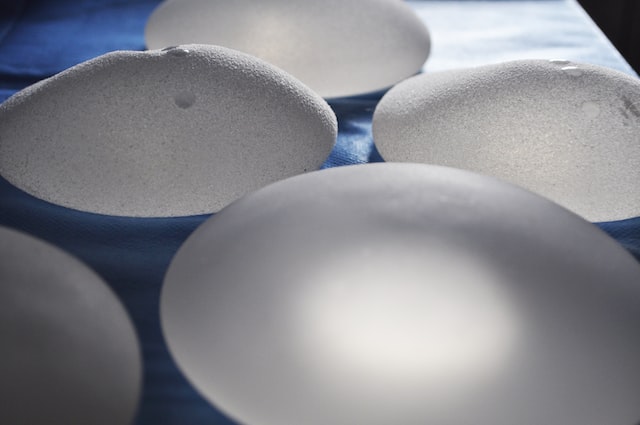
Breast Implant Squamous Cell Carcinoma
The FDA recently issued a new information regarding breast implants. The information or alert is the association between breast implants and squamous cell carcinoma. In its September 8, 2022 letter, the FDA warned of the risk of cancer, squamous cell carcinoma (SCC) and various lymphomas in the scar tissue surrounding the breast implant. At the present time, the incident rate of SCC and various lymphomas are unknown. However, the FDA announcement was based on literature reviews and medical device reports. The literature review showed twenty cases of squamous cell carcinoma and less than 30 cases of other lymphomas. While the medical device reports revealed 10 cases of SCC and 12 cases of other lymphomas. The literature review showed squamous cell carcinoma in the capsule around the breast implants in both textured and smooth implants, and for both saline and silicone implants.
The FDA will continue collecting data regarding the characteristics of SSC and various lymphomas associated with the breast implants. The characteristics the FDA will be assessing may include:
- Time between the date of the implant to the date of the diagnosis.
- Age at diagnosis.
- Implant surface.
- Implant fill (silicone, saline).
- Bilateral cancer.
- Number of deaths per reported cases.
- Family history.
What Are the Symptoms?
- Swelling.
- Presence of a mass.
- Pain.
- Seroma, a fluid collection around the implant.
Textured Breast Implants Breast Implant Associated Anaplastic Large Cell Lymphoma
This warning comes after the July 24, 2019, FDA warning regarding the risk of breast cancer with textured breast implants. There the FDA required Allergan, a manufacturer of a certain type of textured breast implant to recall specific models of its textured breast implant due to risk of breast implant associated anaplastic large cell lymphoma (BIA-ALCL). As of April 21, 2022, the FDA has received 1,130 medical reports of breast implant associated anaplastic large cell lymphoma.
BIA-ALCL is not breast cancer. It is a form of non-Hodgkin’s lymphoma, and the cause is a mutation of a gene which causes T-cells to produce excessive amounts of protein.
What Should You Do If You Have Breast Implants?
If you have no symptoms, the FDA is not recommending the removal of the implant. However, if you have symptoms you should consult with a doctor.
As with any implant, keep a record of the implant including any serial numbers, lot numbers and literature provided by the health care provider. Make a note of the date when and where you received the implant.
The FDA is recommending those that develop symptoms to contact a physician.
The History of Breast Implants?
Breast augmentation started in the early twentieth century with surgeons implanting women with a variety of items, such as crushed rubber, ivory, and ox cartilage. In the 1940’s, women injected silicone into their breasts.
The 1960’s ushered in a new era for augmentation procedures with the arrival of the first encapsulated silicone implant. The Cronin-Gerow implant quickly captured the implant market. The 1970’s brought the first refinement to breast implants. The 1980’s launched an implant with a rubber coating designed to prevent ruptures. Ruptures did decline; however, the implants were firm which lead to a change in the 1990’s to a softer structure.
A seminal event occurred in 1988 when the FDA changed the classification of silicone implants from Class II to Class III. This provided the FDA with the authority to regulate silicone implants and thus required the manufacturers to prove to the FDA that implants are safe for consumers.
In 1993, more that 12,000 women filed lawsuits over complications they asserted were the result of the implants. Over the years the demand for breast implants increased exponentially. In 2021, surgeons performed 365,000 breast augmentations with another 142,000 implants removed and replaced.
Need A Salt Lake City, Utah Breast Implant Lawyer?
If you or a loved one has a diagnosis of breast implant associated anaplastic large cell lymphoma (BIA-ALCL), squamous cell carcinoma (SCC) or other lymphomas, talk to a Salt Lake City, Utah Breast Implant Lawyer at the James Esparza Law Firm. We have helped thousands and we can help you too. Call 801.272.9100 to discuss your legal rights or fill out our contact form.
